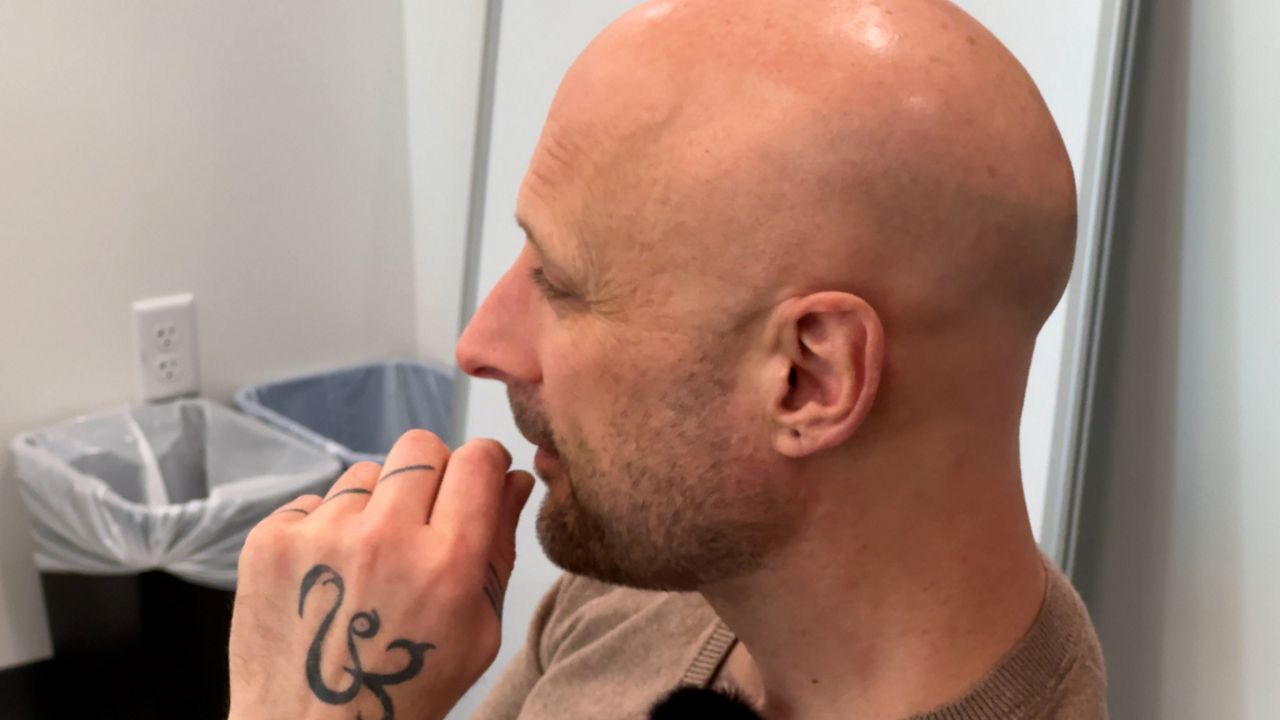MADISON, Wis. — John Ferren said he has struggled with alcoholism for most of his life.
What You Need To Know
- A study done by the National Institute of Health found that “ the correlation between trauma and substance abuse is particularly strong for adolescents with PTSD. Up to 59% of young people with PTSD subsequently develop substance abuse problems"
- Wes Arnett, a peer support specialist for Safe Communities Madison, said everyone he works with has some form of trauma
- Safe Communities offers one-on-one recovery coaching
“It is easy to grab and reach for drinking because that always works to cover up emotional pain,” said Ferren. “It is easy to grab and reach for drinking because that always works to cover up emotional pain,” said Ferren.
Ferren said he would often go through six-month periods of sobriety before ultimately reaching for the bottle.
“I have put together stretches of four years or so but in 2010 I was in treatment for 88 days,” said Ferren.
Over the past few years, Ferren lost both of his parents and ended up in a messy divorce that left him without a home.
He said these things led him to start drinking again.
“You have to treat the alcoholism first and stay away from that, but it is the layers on top of it that are the water slide back to unresolved emotional pain,” said Ferren.

Ferren eventually found himself in the hospital detoxing. That’s when he contacted Wes Arnett, a peer support specialist for Safe Communities Madison.
“My goal is to find out what their goals are and to help support them in achieving those goals,” said Arnett. “Oftentimes that means supporting things that do not fit my recovery, but it fits their recovery.”
Arnett had trouble describing his job. He said he is not a counselor, and he is not a therapist, but many of the services offered by those people are things that he also provides.
“We are able to form relationships with individuals that people can’t form with counselors,” said Arnett.
Arnett said he very rarely comes into the office.
“We are able to meet people where they are at,” said Arnett. “In the case of John, meeting him in the emergency room department that he was admitted to for alcohol withdrawal.”
He said he often continues his relationships with clients for weeks, months or even years after they initially meet.
He said this plays a big part in his success with people.
“If John needs to reach me, he can reach me. I am a phone call away or I am a text away or I am a drive my car away. I am not too far from him,” said Arnett.
With the help of Arnett, Ferren was able to address the trauma that had been pushing him to drink throughout his life.
He said he is sober now and was able to move back into his home.
“It was just the resources and someone who listened and just care, you know,” said Ferren. “Like yeah, we will figure this out.”
A study done by the National Institute of Health found that “the correlation between trauma and substance abuse is particularly strong for adolescents with PTSD. Up to 59% of young people with PTSD subsequently develop substance abuse problems.”
Arnett said to engage with Safe Communities services, people have to fill out an intake form.
On that form, it asks people if they have experienced trauma.
“I have never had someone say no,” said Arnett. “It could be childhood trauma, it could be trauma from their marriage. It doesn’t have to be something as big as going to war to have an impact on someone.”




